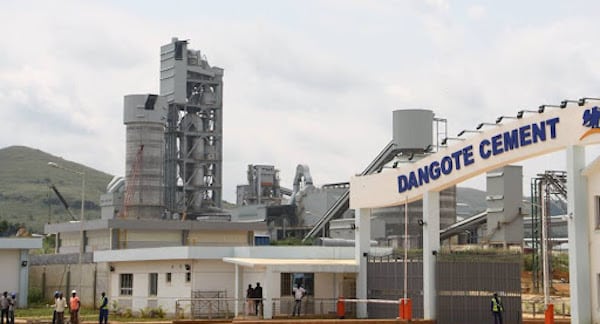The Dangote Petroleum Refinery has categorically denied any involvement in a viral social media video purporting to show a motorcycle-based home delivery service for petrol, describing the content as entirely fabricated and unconnected to its business operations.
The video, which gained massive traction across various platforms on Sunday, depicted a scenario where a customer placed an order for petrol through WhatsApp to avoid long fuel queues. A dispatch rider subsequently appeared at the customer’s location riding a motorcycle equipped with a mini fuel tank and dispensing hose, proceeding to fill the customer’s vehicle directly at his doorstep.
The clip featured graphics branding the purported service as “FuelUp” and indicated it was “powered by Dangote Petroleum,” lending an air of authenticity that prompted widespread sharing and commentary across Nigerian social media.
Reactions to the video were divided, with some Nigerians applauding what they believed to be an innovative response to the country’s persistent fuel scarcity challenges. However, many others expressed alarm over the serious safety hazards associated with transporting highly flammable petrol on motorcycles through traffic and residential areas.
A significant number of viewers also questioned the video’s legitimacy, noting that the graphics and transitions appeared artificially generated rather than professionally produced by a major corporate entity like Dangote.
Responding firmly to the viral content, Anthony Chiejina, Group Chief Corporate Communications Officer of Dangote Petroleum Refinery, stated that the company was taken aback to find its name associated with the video and emphasized that the refinery had absolutely no connection to its creators.
“Fake! We are not in any way associated with this,” Chiejina told The PUNCH on Sunday, making clear the company’s position on the misleading advertisement.
A senior official from the refinery provided additional context, explaining that Dangote’s business model focuses exclusively on supplying petroleum products to bulk buyers and that the company has not entered into any agreements with third-party firms to retail fuel through motorcycle delivery services.
The official added that the refinery was completely unaware of who produced the viral clip and had immediately taken steps to flag it as a misrepresentation of the company’s actual operations and business practices.
While distancing itself from the fake video, the refinery took the opportunity to clarify its genuine distribution framework, which relies on large-scale, safety-focused logistics infrastructure rather than individual retail delivery mechanisms.
Earlier in 2025, Dangote Petroleum Refinery acquired hundreds of Compressed Natural Gas-powered trucks as part of a direct distribution initiative launched in September. These environmentally friendly vehicles represent a central component of the company’s long-term logistics strategy and demonstrate its commitment to safer, cleaner, and more dependable fuel transportation across Nigeria.
Company officials stressed that the refinery does not engage in direct retail sales to individual consumers and has never authorized or contemplated doorstep fuel deliveries via motorcycles, a practice that would raise substantial safety and regulatory concerns.
The Dangote Refinery, situated in the Lekki Free Trade Zone in Lagos, stands as one of the world’s largest integrated petroleum refineries. In recent months, management has concentrated on strengthening operational capabilities and upgrading technical infrastructure to optimize performance.
This modernization drive includes substantial investments in cleaner energy alternatives, automation of critical processing units, enhancement of safety protocols, and improvement of logistics networks to facilitate efficient distribution of refined petroleum products throughout Nigeria and beyond.
Company representatives also confirmed ambitious expansion plans, revealing that the refinery is currently working to scale up its production capacity from 650,000 barrels per day to 1.4 million barrels per day. This doubling of capacity is designed to satisfy Nigeria’s growing domestic fuel requirements while positioning the facility as a major energy supplier for the broader African market.
Officials explained that the capacity expansion represents a strategic initiative aimed at strengthening local supply chains, supporting regional energy trade, and cementing the company’s competitive position in the global petroleum industry for decades to come.



















